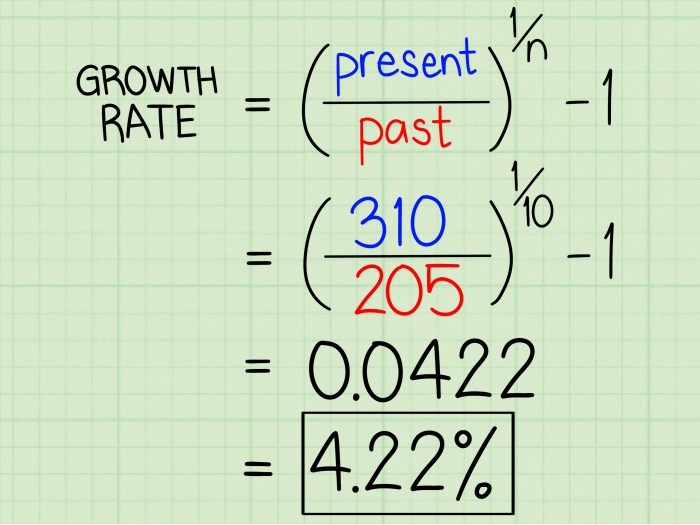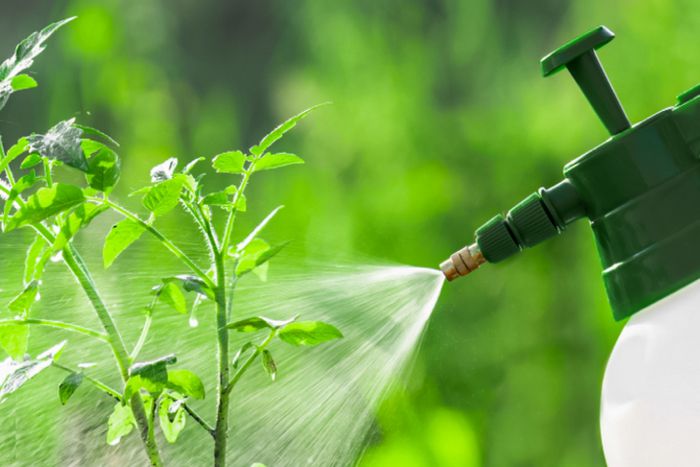How to choose the right driveway pavers is a crucial decision for any homeowner. From the initial selection of materials to the final installation, this guide provides a comprehensive overview to help you make informed choices. We’ll explore different paving materials, discuss key factors like budget and style, and walk you through the entire process, from assessing your needs to working with contractors.
Get ready to transform your driveway into a stunning and durable addition to your property.
Choosing the right driveway pavers involves considering various aspects beyond just aesthetics. Factors like your budget, the local climate, and the style of your home all play a significant role. This guide delves into each of these crucial elements, providing actionable insights to ensure you make the best possible choice for your driveway.
Introduction to Driveway Pavers

Driveway pavers are a popular choice for homeowners seeking a durable and aesthetically pleasing surface for their driveways. They come in a wide variety of materials, each with its own unique characteristics. Choosing the right type of paver is crucial, as it significantly impacts the overall look, longevity, and budget of the project. The selection process should consider factors like the local climate, the desired aesthetic, and the expected traffic volume.Driveway pavers offer a versatile alternative to traditional concrete driveways.
Their variety in colors, shapes, and textures allows for customization and can enhance the curb appeal of a property. However, selecting the correct material is critical, as different types have varying strengths and weaknesses. Factors like cost, maintenance requirements, and durability should be carefully weighed when making a decision.
Different Types of Driveway Pavers
Various materials are used for driveway pavers, each with its own set of advantages and disadvantages. Understanding these differences is key to making an informed choice.
- Concrete Pavers: These are often a cost-effective option. They are highly durable and can withstand heavy traffic. However, they may not offer the same aesthetic variety as other materials, and they can be prone to cracking if not properly installed. Concrete pavers are also available in a range of colors and textures, allowing for customization. Their maintenance is relatively low, requiring only occasional cleaning and sealing to prevent staining.
- Brick Pavers: Brick pavers provide a classic, timeless look. They are durable and come in a wide array of colors and shapes, making them a popular choice for homeowners seeking a visually appealing driveway. The cost of brick pavers can be higher than concrete pavers, and they might require more frequent sealing to maintain their appearance. Brick pavers are known for their excellent durability and resistance to weathering.
- Stone Pavers: Stone pavers, including natural stone like flagstone or slate, or manufactured stone, offer a natural, elegant aesthetic. They are generally durable, but their cost can be higher than other options. Natural stone pavers are often available in various colors, sizes, and textures. Their durability varies based on the specific type of stone used. Regular cleaning and sealing are essential to maintain their beauty.
Comparing Driveway Paver Materials
The table below summarizes the key characteristics of different driveway paver materials, providing a quick comparison for decision-making.
| Material | Cost | Maintenance | Durability |
|---|---|---|---|
| Concrete Pavers | Moderate | Low | High |
| Brick Pavers | High | Moderate | High |
| Stone Pavers | High | Moderate | High (depending on stone type) |
Factors to Consider When Choosing Pavers
Choosing the right driveway pavers is a significant decision that impacts both the aesthetic appeal and the longevity of your property. Careful consideration of various factors, from budget constraints to local regulations, is crucial for a successful project. Understanding these factors will empower you to make informed choices and ensure your driveway meets your needs and expectations.Selecting the perfect pavers involves more than just picking a pretty pattern.
You need to consider practical aspects like the amount of traffic your driveway will see, the local climate, and even the architectural style of your home. This detailed analysis ensures that your driveway not only looks great but also withstands the test of time.
Budgetary Constraints and Cost Estimation
Budgeting for driveway pavers is essential. Precise cost estimations involve considering material costs and labor expenses. A significant portion of the total cost is often allocated to labor, especially for intricate or large-scale projects. The cost of materials will vary based on the type of paver, its size, and the quantity required. It’s prudent to obtain multiple quotes from reputable contractors to compare pricing and ensure transparency.
For example, a simple, small driveway might cost around $5,000-$10,000, while a larger, more elaborate project could easily exceed $20,000.
Choosing the right driveway pavers depends a lot on your budget and style. Think about how much foot traffic the area gets, and the type of pavers that will best handle that. For example, if you’re looking for something durable, you might consider porcelain or concrete pavers. While you’re prepping your driveway, it’s also a great time to tackle those stubborn microwave messes! Check out this super quick method for a sparkling clean microwave in just 5 minutes: how to clean a microwave in just 5 minutes.
Ultimately, the best pavers are the ones that suit your needs and look great with your home’s design.
Impact of Local Regulations and Codes
Local building codes and regulations play a crucial role in driveway paver selection. These regulations dictate permissible materials, installation methods, and dimensions. Understanding these regulations ensures compliance and prevents potential issues down the line. For instance, some municipalities may restrict the use of certain types of pavers in specific areas due to drainage or environmental concerns. It is essential to consult with local authorities or building departments to clarify regulations before starting a project.
Surrounding Environment and Architectural Style
The surrounding environment and your home’s architectural style significantly influence the best paver choices. A modern, minimalist home might look best with sleek, contemporary pavers, while a more traditional home could benefit from classic, textured options. The color and pattern of the pavers should complement the existing landscaping and architectural features. Consider the overall aesthetic to achieve a cohesive and harmonious look.
Measuring the Driveway Area
Accurately measuring the driveway area is vital for precise material calculations. This process ensures that you order the correct amount of pavers to avoid costly shortages or excessive waste. Use a measuring tape or a laser distance meter to obtain precise measurements of the length and width of the driveway. Remember to account for any curves or irregular shapes.
For example, a 20ft x 30ft driveway would require significantly more pavers than a 10ft x 15ft driveway.
Contractor Consultation and Questions
Consulting with a qualified contractor is essential to discuss your project needs. Before committing to a contractor, you should ask specific questions regarding materials, installation techniques, and project timelines. This dialogue clarifies expectations and helps you make an informed decision. Example questions include: What are the different paver options available? What is the estimated timeline for the project?
What are the warranties on materials and installation? What are the payment terms?
Common Driveway Paver Styles and Architectural Suitability
Different paver styles offer unique aesthetic qualities and durability. The table below presents some common styles and their suitability for various architectural designs.
| Paver Style | Architectural Suitability |
|---|---|
| Flagstone | Traditional, rustic, or cottage-style homes |
| Brick | Traditional, craftsman, or colonial-style homes |
| Concrete Pavers | Modern, contemporary, or industrial-style homes |
| Stone Pavers | Modern, contemporary, or rustic-style homes |
Assessing Your Needs and Budget
Choosing the right driveway pavers involves more than just aesthetics. A crucial step is understanding your specific needs and creating a realistic budget. This section will guide you through determining the necessary size and dimensions, setting a budget that covers all costs, comparing quotes effectively, and understanding the role of warranties and financing options.Understanding your requirements and allocating resources are fundamental to a successful driveway paving project.
This section provides a detailed approach to assessing your needs and budget, ensuring you make informed decisions throughout the entire process.
Determining Driveway Size and Dimensions
Accurately determining the size and dimensions of your driveway is paramount. This prevents costly overruns or insufficient space for vehicles and pedestrian traffic. Measure the existing area where the driveway will be installed. Consider the following factors:
- Vehicle Requirements: Account for the width and length of your vehicles, ensuring ample turning space and maneuvering room. Allow extra space for potential future vehicle upgrades, if needed.
- Pedestrian Traffic: If pedestrians will use the driveway, include wider walkways and appropriate safety features.
- Slope and Grade: Consider the slope and grade of the area. A proper slope is essential for water drainage, preventing water pooling and potential damage to the driveway and surrounding landscaping.
- Existing Utilities: Locate any underground utilities, such as pipes and electrical lines, to avoid damage during the installation process. A professional survey can pinpoint these utilities.
Budgeting for Driveway Pavers
Creating a realistic budget is essential for any driveway paving project. Consider the following factors when estimating costs:
- Paver Material Costs: The type of paver material (e.g., concrete, brick, natural stone) will significantly impact the cost. Compare prices for different materials to determine the best option for your budget.
- Labor Costs: Contractor labor costs vary greatly depending on location, experience, and complexity of the project. Get quotes from multiple contractors to compare rates.
- Installation Costs: Installation costs include materials like sand, gravel, and cement, as well as the labor involved in laying the pavers. Consider the complexity of the design and any required excavation or grading.
- Permitting and Inspection Fees: Local regulations may require permits and inspections, adding to the overall project cost.
- Contingency Fund: Set aside a contingency fund to account for unforeseen expenses or changes during the project.
Comparing Contractor Quotes
Comparing quotes from multiple contractors is crucial for securing the best possible value. Look beyond the initial price; consider the experience, reputation, and the overall quality of their services.
- Detailed Proposals: Request detailed proposals from each contractor outlining all costs, materials, timelines, and warranties.
- References: Ask for references and contact past clients to get insights into the contractor’s work quality, communication, and project management.
- Insurance and Licensing: Verify that the contractor is properly licensed and insured. This protects you from potential liabilities.
- Payment Terms: Compare payment terms and timelines for a clear understanding of the financial commitments.
Comparing Paver Material Pricing
The following table provides a general comparison of paver material pricing. Actual costs will vary depending on the specific material, quantity, and location.
| Paver Material | Estimated Price Range (per square foot) |
|---|---|
| Concrete Pavers | $5-$15 |
| Brick Pavers | $8-$20 |
| Natural Stone Pavers | $15-$50+ |
Warranties and Guarantees
Warranties and guarantees are essential components of any paving project. These protections safeguard your investment and ensure the longevity of your driveway.
- Warranty Duration: Consider the duration of the warranty offered by the contractor. A longer warranty often indicates a higher level of confidence in the materials and workmanship.
- Warranty Coverage: Understand the specific coverage of the warranty, including defects in materials, workmanship, and structural integrity. Ask questions about the scope of coverage and the process for making claims.
Financing Options
Financing options can make large driveway paving projects more accessible. Explore available options to manage the financial aspects of your project.
Choosing the right driveway pavers involves considering factors like budget and aesthetics. But did you know that a lush garden of citronella plants, like the ones in citronella plant growing guide , can also offer a beautiful and practical solution for pest control? Ultimately, the best pavers for your driveway depend on your specific needs and preferences.
- Home Improvement Loans: Consider home improvement loans to finance the project.
- Personal Loans: Personal loans can provide funding options for your driveway project.
- Credit Cards: Using credit cards can offer flexible payment options, but interest rates should be carefully considered.
Selecting the Right Paver Style and Design
Choosing the right style and design for your driveway pavers is crucial for achieving a look that complements your home’s architecture and personal aesthetic. Beyond practicality, the visual appeal of your driveway significantly impacts curb appeal and the overall property value. Careful consideration of various styles, colors, and patterns is essential to creating a driveway that you’ll enjoy for years to come.The design choices available for driveway pavers are vast, ranging from classic and traditional to modern and contemporary.
This decision often hinges on the desired aesthetic and the overall architectural style of the home. Understanding the different styles, colors, and patterns allows homeowners to make informed choices that enhance their property’s visual appeal.
Choosing the right driveway pavers depends on factors like budget and aesthetic preferences. Consider the durability of different materials, and how well they’ll stand up to weather conditions. You also need to think about maintenance; some pavers are easier to clean than others. While researching pavers, you might find yourself curious about cleaning techniques, like whether you can hand wash towels with vinegar and baking soda.
This could help you decide which pavers will be easiest to maintain, which is a crucial aspect when considering the overall longevity and appearance of your driveway. Ultimately, the best pavers for you will depend on your specific needs and preferences. can you hand wash towels with vinegar and baking soda might offer some inspiration for how to keep your pavers sparkling.
Do your research and find what works best for your driveway.
Driveway Paver Styles
Different styles of driveway pavers evoke distinct moods and aesthetics. Traditional styles often feature classic shapes and muted colors, providing a timeless appeal. Modern styles lean towards clean lines, geometric shapes, and a wide array of colors and textures, creating a contemporary feel. Rustic styles, on the other hand, emphasize natural materials and organic shapes, introducing a touch of warmth and character.
Colors and Patterns
The choice of colors and patterns for driveway pavers significantly impacts the visual impact of the space. Muted tones like grays, browns, and beiges create a sophisticated and understated ambiance. Bold colors like reds, oranges, and yellows add vibrancy and energy, while contrasting patterns can create visual interest and dynamism. Consider the existing colors of your home’s exterior when making these choices.
For instance, a home with a muted exterior might benefit from a bold color scheme in the driveway pavers, while a vibrant exterior might call for more neutral tones.
Paving Layouts and Patterns
The arrangement of pavers, or the paving layout, significantly influences the visual impact of the driveway. A simple herringbone pattern can create a sophisticated look, while a more complex layout can add depth and dimension. Consider the size and shape of the pavers, as well as the overall space available when determining the best pattern. Straight, parallel lines provide a clean and organized aesthetic, while staggered patterns create a more dynamic and visually appealing look.
Popular Driveway Paver Designs
- Traditional: These often use classic shapes like rectangles and squares in neutral colors, arranged in simple patterns for a timeless appeal.
- Modern: Modern designs often feature geometric shapes, bold colors, and contrasting patterns to create a contemporary feel. They are particularly well-suited for homes with clean lines and minimalist architecture.
- Rustic: Rustic designs emphasize natural materials and organic shapes, often incorporating variations in color and texture to evoke a sense of warmth and character. This style works particularly well for homes with a farmhouse or craftsman aesthetic.
- Geometric: Geometric designs use precise shapes and angles to create a visually striking and contemporary look.
- Herringbone: This traditional pattern creates a visually appealing and sophisticated look by placing pavers in an interlocking pattern, similar to the bones of a herring.
Decorative Elements
Incorporating decorative elements into the driveway design can enhance its visual appeal and add a personalized touch. Consider incorporating borders, edging, or decorative stones to create visual separation and focal points. Lighting can be used to highlight specific features or patterns, adding a touch of elegance and safety.
Driveway Paver Patterns and Visual Impact
| Pattern | Visual Impact | Suitable for |
|---|---|---|
| Simple Rectangles | Clean, classic, timeless | Most home styles |
| Herringbone | Sophisticated, visually engaging | Modern, traditional, or contemporary homes |
| Staggered | Dynamic, visually appealing, adds depth | Homes with contemporary or modern aesthetics |
| Geometric | Modern, striking, visually interesting | Homes with clean lines, modern architecture |
| Circular/Curved | Unique, artistic, draws attention | Homes with unique architectural styles |
Installation and Maintenance Considerations
Choosing the right driveway pavers is only half the battle. A beautiful, durable driveway requires meticulous planning and execution during installation, followed by consistent maintenance to ensure its longevity. Proper techniques and materials are essential to avoid costly repairs and ensure the driveway’s aesthetic appeal and structural integrity remain intact for years to come.A well-installed paver driveway is a testament to careful planning and execution.
Ignoring critical aspects like sub-base preparation can lead to uneven settling, cracks, and ultimately, a driveway that requires costly and time-consuming repairs. Conversely, a driveway installed with meticulous attention to detail and proper maintenance will endure the test of time, providing years of reliable service and beauty.
Proper Installation Techniques
Careful attention to detail during installation is paramount for a long-lasting paver driveway. This includes precise leveling, ensuring proper compaction of the sub-base, and the use of appropriate sand or gravel bedding layers. Correct installation prevents future problems like uneven settling, cracks, and overall structural instability. Employing experienced installers with a proven track record is a worthwhile investment.
Sub-Base Preparation
The sub-base forms the foundation for the pavers, acting as a support system that distributes weight evenly. Adequate sub-base preparation is critical to preventing uneven settling and cracks. The sub-base should be level, compacted, and free of debris to ensure a stable foundation for the pavers. Poor sub-base preparation can lead to costly repairs and a driveway that does not last.
Sealing and Maintenance Procedures
Regular sealing and maintenance are crucial for extending the lifespan of paver driveways. Sealing protects the pavers from the elements, preventing stains and extending their aesthetic appeal. Various sealing products are available, each with specific characteristics. Choosing the right sealant for your paver material is essential for long-term protection. A sealant protects the pavers from the penetration of water and other substances that can lead to stains and discoloration.
Expected Lifespan of Different Paver Materials
| Paver Material | Expected Lifespan (Years) | Factors Affecting Lifespan |
|---|---|---|
| Concrete Pavers | 20-30+ | Quality of concrete, installation, and environmental conditions |
| Natural Stone Pavers (e.g., Flagstone, Granite) | 40-50+ | Durability of the stone, installation, and exposure to weathering |
| Brick Pavers | 25-40+ | Quality of brick, installation, and environmental conditions |
| Interlocking Concrete Pavers | 20-30+ | Quality of concrete, installation, and environmental conditions |
Note: Expected lifespans are estimates and can vary based on several factors, including environmental conditions, installation quality, and the specific type of paver material used.
Handling Potential Issues: Cracks and Damage
Addressing cracks and damage promptly is essential to prevent further deterioration. Small cracks can be filled with appropriate patching materials, while larger cracks may necessitate more extensive repairs. Regular inspections of the driveway are critical for early detection of issues.
Cleaning and Maintaining a Paver Driveway
Regular cleaning is essential for maintaining a paver driveway’s appearance and extending its lifespan. Use a broom to remove loose debris, and use a mild detergent and water for general cleaning. Avoid using harsh chemicals or abrasive cleaners, as these can damage the pavers. A well-maintained paver driveway requires consistent effort to keep it clean and attractive.
Working with Contractors and Professionals
Choosing the right driveway pavers is a significant investment. Partnering with competent and reputable contractors is crucial for a successful and satisfying project. Finding the right professionals will ensure your vision is realized, the work is done to a high standard, and your driveway stands the test of time.Selecting a qualified contractor is a pivotal step in the paver installation process.
It’s not just about the price; it’s about the experience, expertise, and commitment to quality. The right contractor will have a proven track record, a deep understanding of the materials, and the skill to execute your project flawlessly.
Finding Reputable Contractors
Word-of-mouth recommendations from neighbors or friends who have recently had similar projects completed are excellent starting points. Online reviews on platforms like Yelp or Google can also offer valuable insights into a contractor’s past performance. Checking with local home improvement associations or professional organizations for referrals can help you identify qualified and vetted contractors. Attend local home shows or construction expos for potential leads and demonstrations.
Evaluating Contractor Qualifications
A thorough evaluation of potential contractors is vital to ensure they possess the necessary skills and experience. A checklist can streamline this process. Look for contractors with relevant licenses, insurance, and permits. Ask for references from previous clients and contact them to gather firsthand accounts of the contractor’s work ethic and quality of service. Verify their experience in similar driveway projects, particularly those using the same paver materials you’re considering.
Assess their ability to provide detailed proposals outlining the scope of work, timelines, and costs. Review their portfolio to assess the quality of their previous work.
Obtaining Multiple Quotes and Comparing Proposals
Seeking multiple quotes from different contractors is crucial for informed decision-making. Each proposal should be carefully reviewed, paying close attention to details such as material costs, labor rates, project timelines, and potential hidden fees. Compare the scope of work Artikeld in each proposal and ensure they address your specific needs. Analyze the payment schedule, warranties, and guarantees provided by each contractor.
Ask questions about their project management approach and contingency plans for potential issues. A detailed comparison table can help in this process.
Obtaining Permits and Approvals
Local regulations and ordinances often dictate the requirements for driveway projects. It’s crucial to research and understand the specific regulations in your area. This includes obtaining necessary permits and approvals from the local municipality. This step is often handled by the contractor, but you should be aware of the process and any potential delays or complications.
Contracts and Communication, How to choose the right driveway pavers
A well-drafted contract is essential for a smooth and successful project. It should clearly Artikel the scope of work, timelines, payment schedule, warranties, and dispute resolution procedures. A detailed contract ensures everyone is on the same page and minimizes potential misunderstandings. Regular communication with your chosen contractor is vital throughout the project. Establish clear communication channels and schedules for updates, address any concerns promptly, and ensure everyone is on the same page.
This fosters trust and facilitates a smooth workflow.
Illustrative Examples of Driveway Designs: How To Choose The Right Driveway Pavers

Transforming your driveway from a functional space to a beautiful extension of your home’s aesthetic is achievable with careful design choices. The right driveway paver design can significantly enhance curb appeal and property value. Understanding different styles and materials is crucial for making an informed decision.Choosing a driveway design involves considering your home’s architectural style, the surrounding landscape, and your personal preferences.
A well-planned design enhances the visual harmony of your property and contributes to a welcoming first impression.
Contemporary Driveway Designs
Contemporary driveway designs often feature clean lines, minimalist aesthetics, and a focus on functionality. Materials such as concrete pavers in various shades of gray or neutral tones, coupled with smooth edges and geometric patterns, are frequently employed. The use of contrasting materials, like polished stone or metal accents, can add a touch of modern sophistication. These designs typically prioritize efficiency and simplicity, while still maintaining a visually appealing aesthetic.
The smooth transitions between the driveway and the surrounding landscaping create a seamless flow. Think sleek, low-maintenance, and durable, reflecting the contemporary lifestyle.
Traditional Driveway Designs
Traditional driveway designs evoke a sense of classic elegance and timeless appeal. Natural stone pavers, such as brick or flagstone, in warm earth tones are frequently used. These designs often incorporate intricate patterns, symmetrical layouts, and a balance between form and function. They complement homes with a traditional or craftsman architectural style, emphasizing the heritage of the structure.
Curved or winding pathways, with carefully laid pavers, are characteristic elements of this design style.
Modern Driveway Designs
Modern driveway designs prioritize clean lines, geometric patterns, and the use of high-quality materials. These designs often incorporate a combination of materials like concrete pavers in varying textures and shades, or even polished concrete, to create a visually stunning and functional space. Modern designs often incorporate permeable paving solutions to manage stormwater runoff effectively. The integration of outdoor lighting, carefully chosen to accentuate the driveway’s design features, can add a sophisticated touch.
This style often embraces innovation and functionality while emphasizing visual appeal.
Comparing Driveway Design Examples
| Design Style | Materials | Pros | Cons |
|---|---|---|---|
| Contemporary | Concrete pavers, polished stone, metal accents | Low maintenance, durable, sleek aesthetics, adaptable to various property types | May require specialized installation, potentially higher initial cost |
| Traditional | Brick, flagstone, natural stone | Adds a touch of elegance, timeless appeal, complements traditional homes | Can be more expensive than other options, potentially higher maintenance requirements |
| Modern | Concrete pavers, polished concrete, permeable paving | Durable, stylish, eco-friendly, enhances property value | May require specialized installation, potential cost variations based on chosen materials |
Adapting Designs to Different Property Types
Driveway designs should be tailored to the specific features of the property. For example, a sloped property might require a carefully engineered layout to ensure stability and drainage. A narrow property might benefit from a design that maximizes space without sacrificing aesthetics. Consider the existing landscaping, the architectural style of the home, and the overall feel you wish to achieve.
For example, a large, open property might benefit from a wider driveway with more elaborate designs, while a smaller property might require a more compact and functional design. Integrating the driveway design seamlessly with the surrounding environment is essential.
Concluding Remarks
In conclusion, choosing the right driveway pavers is a multifaceted process that requires careful consideration of your specific needs and preferences. By evaluating various materials, understanding installation intricacies, and working with experienced professionals, you can transform your driveway into a beautiful and durable feature. Remember to thoroughly research, plan your budget, and prioritize quality installation for long-term satisfaction.






